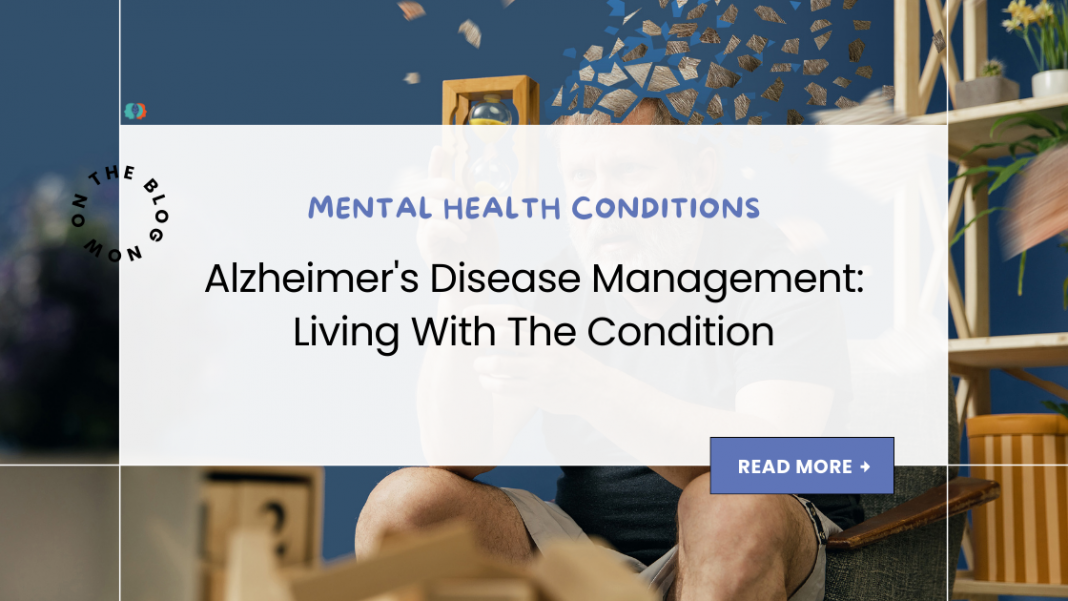Alzheimer’s Disease is a progressive neurological disorder that gradually erodes memory and cognitive abilities, ultimately impairing the ability to carry out the simplest tasks. It is the most common cause of dementia among older adults, representing a major challenge for healthcare systems worldwide. Its management can be tricky. Delving into the understanding of Alzheimer’s is critical for early identification, providing care, and seeking treatments to improve life quality for affected individuals and their families.
Symptoms
The onset of Alzheimer’s Disease is often subtle, with the earliest signs resembling common age-related forgetfulness. However, as the disease advances, symptoms become more pronounced and debilitating. They include:
- Memory Loss: Difficulty recalling recent events or conversations.
- Confusion: Trouble with time, places, and the recognition of familiar faces.
- Speech and Writing Changes: Struggling to follow or join a conversation, repetitive conversations, and difficulty with vocabulary.
- Reasoning and Judgment: Poor decision-making abilities, especially in dealing with money or following a plan.
- Withdrawal: Decreased interest in work or social activities, and retreat from hobbies.
Monitoring these symptoms is vital for early intervention and slowing disease progression.
Types
Alzheimer’s Disease is generally classified into several types based on age of onset and progression:
- Early-Onset Alzheimer’s: Occurs in individuals under 65. It is less common and tends to progress rapidly.
- Late-Onset Alzheimer’s: The most common type, developing in individuals 65 and older.
- Familial Alzheimer’s Disease (FAD): A rare form that is inherited, caused by gene mutations.
Recognizing the type of Alzheimer’s is essential for providing appropriate care and managing expectations.
Causes
The exact causes of Alzheimer’s are not fully understood, but a combination of genetic, lifestyle, and environmental factors are believed to impact risk. Notable factors include:
- Age: The greatest known risk factor for Alzheimer’s is increasing age.
- Genetics: Certain genes have been identified that increase the risk.
- Brain Changes: Abnormal protein deposits form amyloid plaques and tau tangles in the brain, contributing to cell death.
- Lifestyle: Some evidence suggests a link between heart health and brain health, indicating that maintaining cardiovascular health may prevent Alzheimer’s.
Further research is crucial to unravel the complexities of Alzheimer’s causes.
Diagnosis and Testing
Diagnosing Alzheimer’s involves a meticulous process, as there is no single test to determine its presence. The procedure typically includes:
- Medical History Review: Evaluation of overall health and past medical issues.
- Neurological Exams: Assessing memory, problem-solving, attention, counting, and language skills.
- Brain Imaging: MRI and CT scans to rule out other conditions that may cause symptoms.
Early and accurate diagnosis can significantly affect management and care strategies.
Treatment
There is currently no cure for Alzheimer’s, but there are treatments that can help manage symptoms:
- Medications: Cholinesterase inhibitors and memantine can help with cognitive symptoms.
- Therapies: Occupational therapy can aid in making the home safer and teaching coping behaviors.
- Clinical Trials: Participation in research may provide access to cutting-edge treatments.
Managing Alzheimer’s is about improving quality of life for both patients and caregivers.
Small Tips for better Alzheimer’s Disease Management
Living with Alzheimer’s requires adjustments, but there are ways to make daily life easier:
- Structured Environment: Keeping a routine can reduce confusion for individuals with Alzheimer’s.
- Memory Aids: Using notes, lists, and electronic reminders can help compensate for memory loss.
- Engagement in Activities: Involvement in simple, enjoyable activities can provide stimulation and a sense of accomplishment.
- Support Networks: Connecting with Alzheimer’s groups provides emotional support and practical advice.
Adopting these strategies can provide comfort and ease the challenges faced by individuals and families. It can significantly improve the Alzheimer’s Disease management process and aid those in need.



